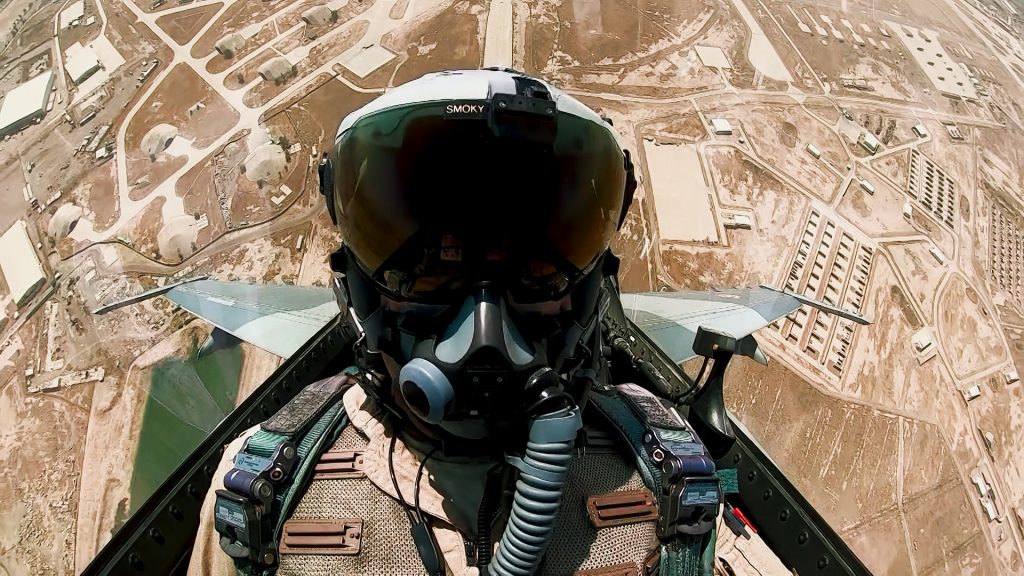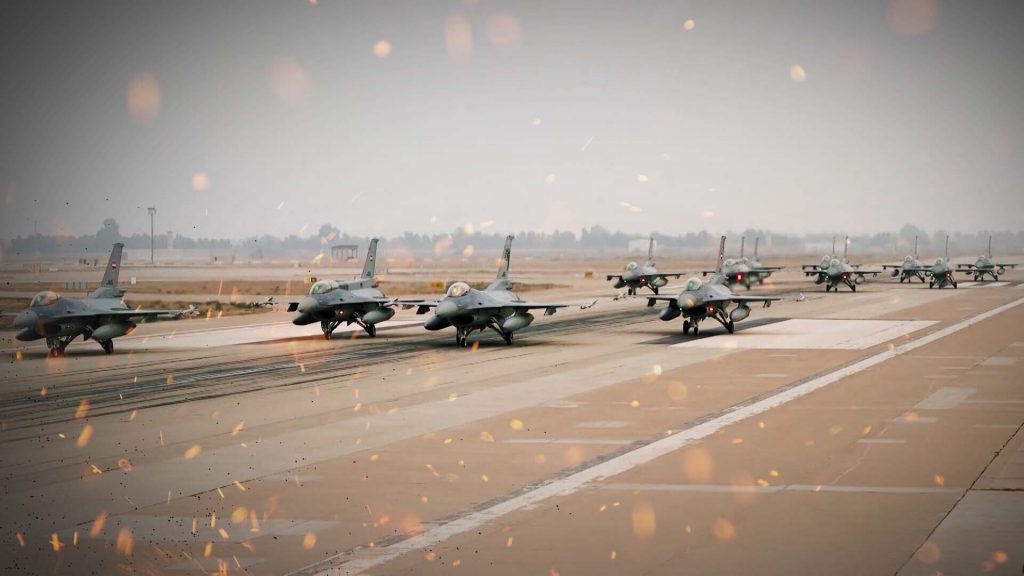In 2021, the Iraqi Air Force (IQAF) became the country’s principal strike force, hunting and destroying Daesh remnants and their few remaining hideouts. Since the territorial defeat of Daesh in 2017, the Global Coalition’s forces have provided significant amounts of logistical and operational support to the IQAF, but more recently have taken a back seat as Iraq’s domestic military air capability has gone from strength to strength.
“Recently, the Iraqi Air Force decided to strike a known enemy stronghold using different squadrons and weapons, without even telling us when it was going to happen,” said Lieutenant Col. Ed, a French member of the Military Advisor Group. “It is a very independent type of decision-making process,” he added.
By the second half of 2021, the IQAF had largely taken ownership of conducting independent airstrikes on Daesh targets. In fact, it launched more strikes between June and December 2021 than all non-Iraqi Coalition force strikes in the same period in 2020. This ability to plan and conduct autonomous operations represents a significant step forward for the IQAF towards self-sufficiency and thus provides a credible Iraqi “dynamic strike capability” that will contribute significantly “to the success of the counter-Daesh mission,” said Sean W. O’Donnell, Lead Inspector General at the Combined Joint Task Force-Operation Inherent Resolve (CJTF-OIR).

In 2015, facing a national security crisis with a non-combat-ready Air Force, the Government of Iraq (GoI) requested international assistance. Since that point, cooperation and collaboration between both the GoI and the International Coalition have been fundamental to ensuring the IQAF can now stand on its own two feet. Major General Tahseen Al-Khafaji, Spokesperson of the Iraqi’s military Joint Operations Command (JOC), outlined the Coalition’s role in fundamentally supporting the IQAF: “It provided loans and extra tools for training as well as consultancy – all designed to improve our capabilities.”
Acquisition of modern military aircraft was critical in helping the IQAF towards operational independence with its own strike capacity. Since 2011, the IQAF has acquired F-16 fighter-bombers, Sukhoi-25 fighter jets and L-159 light combat aircraft. These aircraft have enabled the IQAF to “carry out a series of operations and very precise airstrikes,” said Al-Khafaji. Precision is key because from 2016-2018, the IQAF was forced to rely heavily on less effective ‘cargo planes’ to conduct its campaigns against Daesh.

While materiel aid was vital in creating Iraq’s now operational F-16 programme, training from Coalition partners both inside and outside Iraq has given the members of the IQAF the knowledge, skills and experience to lead aerial combat against Daesh. For example, under the tutelage of the Czech Republic’s 6th Air Advisory Team, Iraq’s 115th Squadron increased the number of air-strikes it conducted using Czech-made L159 aircraft. Using these cost-effective light attack jets, the IQAF launched some 20 airstrikes between June and December 2021, destroying numerous Daesh weapons caches and fortified hideouts across Diyala province.
However, success brings its own challenges. Like many advanced airforces across the globe, the IQAF must now learn how to manage and maintain an expensive fleet of military assets to meet ever-changing security threats against a backdrop of domestic political instability and turbulence in the international economy. As the Coalition transitions into its Advise, Assist and Enable Mis-sion, al-Khafaji explains the IQAF’s role: “ to protect our skies and our borders from any infiltration.”

